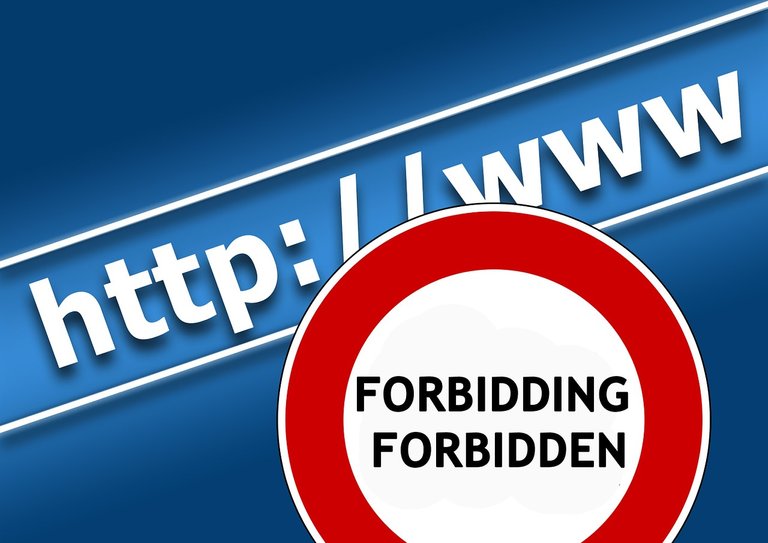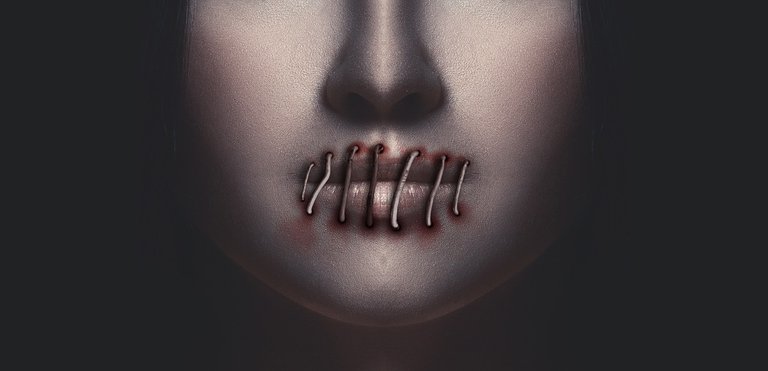Restricted and Unrestricted Internet is an awesome writing contest organized by @upmewhale in order to enhance the #Newsteem advent. Before l delve into it, I am saying a big thank you to @upmewhale as this contest will enlighten people from different parts of the world on this very important topic.

Source: Pixabay.com
The advent of the Internet dates back to the 1960s, where it was primarily used as the means of connection in the military and academic field. As things began to evolve, the Internet became mainstream when commercial networks and enterprises were linked together in the 1990s.
The Internet involved so much that it became one of the best technology humans developed. It brought about accelerated communication through instant messaging, selling/buying of goods and a go-to place for the latest news/information.
Amongst all the advantages, freedom brought about by the Internet is the most important of them all. The Internet brought freedom of speech and also serves as a medium in which voices are heard. This is one of the reasons why the government is doing all they can to censor the Internet.
Censoring of the Internet is of various degrees depending on the country of interest. While some countries censor the Internet on a moderate level, others go as far as censoring every content such as the news, conversations of individuals, online payments, etc. The government has many technical ways of censoring the Internet some of which are through Internet service providers (ISP), blocking of DNS requests, blocking access to IPs, DNS/URL filtering and placing of regulatory laws that prevent posting or removal of certain contents online.
Nigeria has the largest economy in Africa and has a growing population of over 200 million people. According to statistical data, Nigeria had 9.2 million Internet users as of the year 2018. Due to the outburst of social media, total censorship of television/radio stations and poor electricity supply in Nigeria, the Internet became a number one (1) source for news and information.
Unlike other countries such as China that have stringent restrictions on the Internet, Nigeria has moderate Internet censorship, which places Nigeria on the 21st position out of 65 countries that were measured for censorship of the Internet in the year 2018. In 2017, a popular news outlet naij.com and 21 other websites were blocked by the government. This was as a result of them promoting the contents of a region that's against the government.
The Nigerian government also went as far as passing a new bill on the 21st of November 2019. The new bill was on hate speech coupled with a death penalty by hanging for anyone found guilty. Their claim was that the Internet is turning into an instrument of conflict and war, and needed to be regulated. Regulating the Internet by passing a death penalty is what baffles me. This clearly shows that the government is scared and wants to take freedom off the hands of the citizens.
Decentralized Internet
The invention of Bitcoin by Satoshi Nakamoto in the year 2009, gave birth to blockchain technology. Blockchain technology is here to eliminate problems we face with centralization from big companies and governments.
With the help of blockchain technology, the Internet will be transformed into a decentralized internet known as Web 3.0. Blockchain projects such as Skycoin and Substratum are already making this possible via the vision to create a decentralized Internet that is free from censorship/restrictions. With the aid of widespread nodes on the blockchain, there will be no single authority or geo-restrictions on contents posted on the Internet.
In addition to the above, decentralized blockchains such as the Steem blockchain has created the podium to solving problems relating to censorship, by enabling social media platforms to be built on it. Some of these are Steemit (a social platform like Facebook, Twitter, and Reddit), Dtube ( a decentralized version of centralized YouTube), Musing (a question and answer platform like Quora), etc.
Moderation is needed
In my opinion, I would say yes to censoring, but to some extent. The Internet should be censored to certain limits and not for selfish political reasons. For example, regulations should be put in place for social media owners to restrict unsafe content such as cyberbullying, abusive words, Not Safe For Work (NSFW), etc that are unsafe for children.
Presently in Nigeria, the rate of cybercrime has skyrocketed due to excessive freedom of the Internet. The Nigeria communication commission (NCC) in a press release, says Nigeria ranks 3rd in the global ranking of cybercrime. More than 80% of these crimes are carried out by youths.
These are areas the government should focus more on censoring rather than seeking for ways of taking away freedom of speech and expression from citizens.

.png)